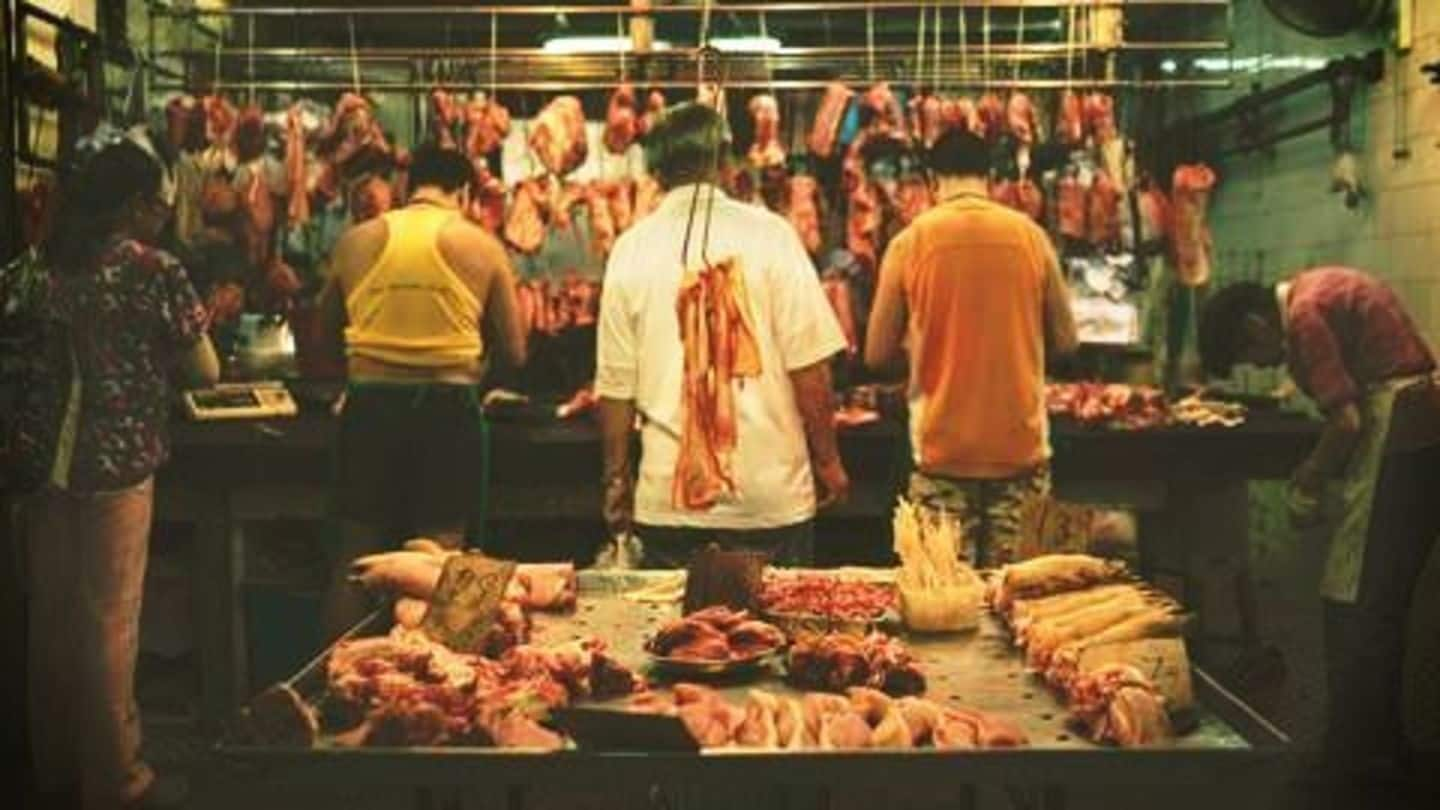
Meat-sellers in UP: Govt. notifies rules for selling meat
What's the story
Uttar Pradesh government notified a list of 17 dos and don'ts for meat-sellers. The list includes transporting meat in insulated freezer vans, health certificates for workers, forbidding meat shops near religious places/vegetable markets, strict Food Safety and Drug Administration compliance. The exhaustive list of necessary infrastructure may force many retailers to shut down permanently. However, no new guidelines to regulate meat-selling have been framed.
Meat Ban
Yogi Adityanath government's crackdown on illegal slaughterhouses
After taking charge as Chief Minister of Uttar Pradesh, Yogi Adityanath shut illegal slaughterhouses in the state. Crackdown on illegal slaughterhouses was one of the promises BJP made in UP, India's largest beef producer. Following the crackdown, meat-sellers launched an indefinite strike against the government's move. The strike was called off after CM Adityanath assured that genuine meat-sellers and exporters would be protected.
Quote
Senior government officials' statement
"All orders issued by the National Green Tribunal and Supreme Court are being strictly followed. All this while, this trade has been going on unregulated. We have simply implemented existing rules. This is not a banana republic."
Location
No meat shops near religious places, vegetable markets
Meat-sellers in UP were ordered to maintain a beyond 50-metre radius of religious places; they must ensure the shops are located at least 100 meters away from the main gate of such places. Meat shops cannot be located near vegetable markets. Sellers can't slaughter any poultry/animal inside shops, they must put up curtains or tinted glasses so that outside people can't see the meat.
Paperwork
Guidelines include a lot of paperwork
Workers at meat-selling shops must obtain health certificates from government doctors; the meat must be certified by authorized veterinarians. For obtaining licenses, applicants in urban areas must get a no-objection certificate (NoC) from the circle officer, municipal corporation, and FSDA. Sellers in rural areas will need an NoC from gram panchayat, circle officer, and FSDA. Defying FSDA norms would lead to immediate license suspension.
Quote
Systemic problems to be faced
Firozabad district doesn't have a slaughterhouse from where sellers could buy meat. Municipal Commissioner Pramod Kumar said, "There is no slaughterhouse here and we cannot give a temporary license. For the time being meat shops will not be allowed to operate."
Instructions
Meat can be transported only in insulated freezer vehicles
All meat-sellers have been instructed not to slaughter any ill, milch, or pregnant animals. Vendors must get their premises white-washed every six months, have proper waste disposal systems, and maintain complete records of meat purchases. Knives and all other instruments must be made only of steel. Meat can be transported from slaughterhouses only in insulated freezer vans, and stored in refrigerators with transparent doors.
Criticism
Government's orders receive sharp criticism
Sarvadaliya Muslim Sangharsh Samiti's National President Jameeluddin Qureshi said the government's decision would make at least 60% vendors go out of businesses. He demanded a single-window system, as many NoCs are required. He also added, "Vendors have already suffered huge financial losses because of the crackdown. We demand that the government not only pass new guidelines but immediately start issuing fresh licenses."
Quote
A meat vendor expresses concerns
Mohammad Rafiq Qureshi, a meat vendor in Mantola, said, "The new guidelines are quite strict and will push many out of the business. Authorities are asking for too many NoCs and there is also no clarity about fees to be paid for obtaining new licences."